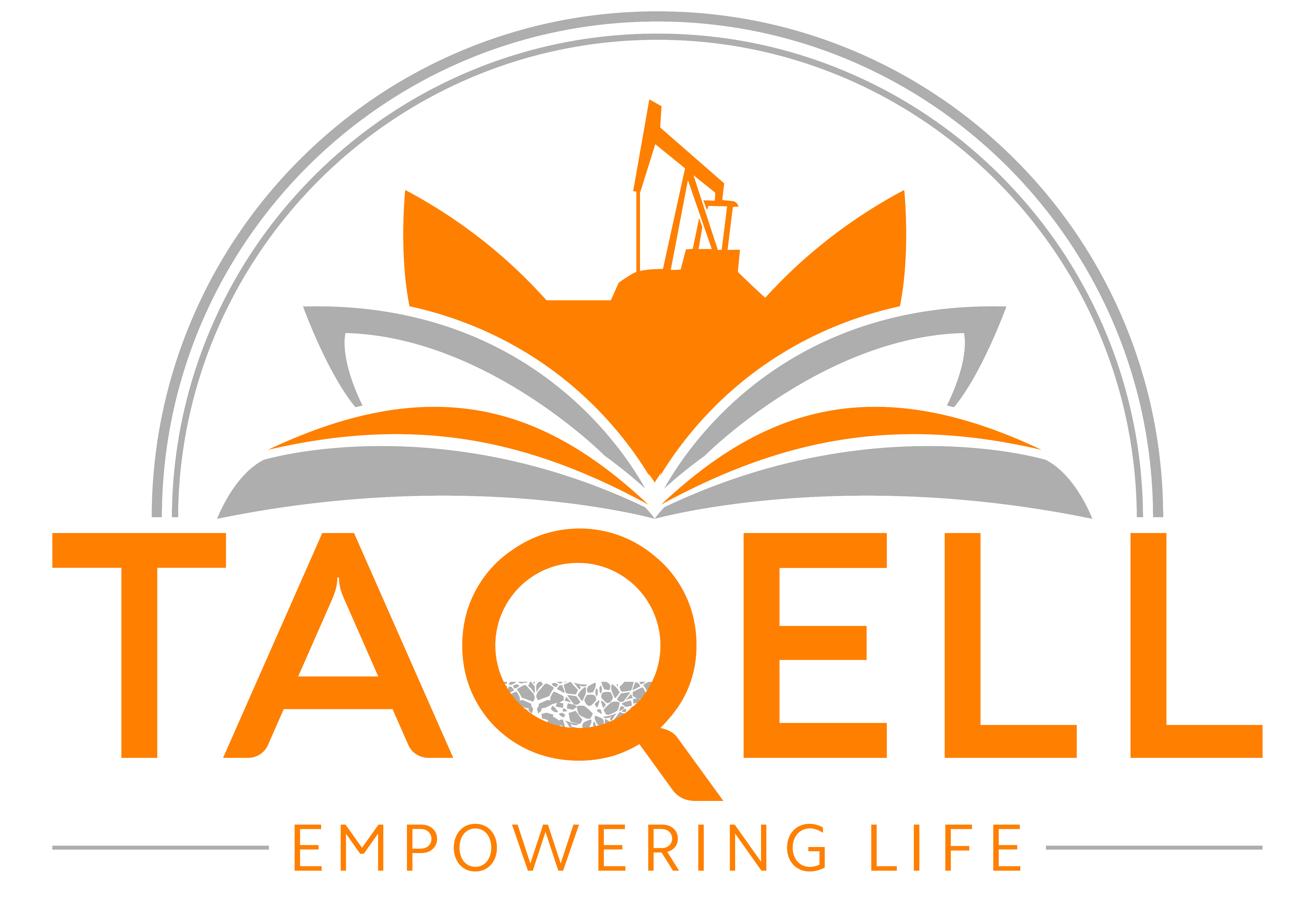Course Overview
The QA/QC of Deep Foundation Testing course at TAQELL offers comprehensive training on the methods and practices essential for ensuring the integrity and reliability of deep foundation systems. This course covers a variety of testing techniques used in the assessment and quality control of deep foundations, providing participants with both theoretical knowledge and practical skills.
Course Format
Online: Flexible and accessible learning from anywhere, suitable for working professionals.
Offline: Hands-on training with direct access to instructors and testing equipment, ideal for those who prefer in-person interaction.
Detailed Course Content
High Strain Dynamic Pile Testing
This method involves applying a dynamic load to a pile and measuring the response using a Pile Driving Analyser (PDA) to assess pile capacity, evaluate pile integrity, and determine the dynamic behaviour of piles. The technique utilizes PDA, wave equation analysis, and interpretation of force and velocity data, making it suitable for both driven piles and drilled shafts, whether during installation or after construction.
Low Strain Pile Integrity Testing (PIT)
Low strain PIT, also known as Sonic Echo or Pulse Echo testing, involves applying a small impact to the pile head and analysing the reflected waves to detect defects such as cracks, voids, and necking in piles. This technique uses an impact device and a receiver to measure the velocity of the wave along the pile, making it effective for evaluating the integrity of cast-in-place concrete piles and other similar structures.
Cross-Hole Sonic Logging (CSL)
CSL involves sending ultrasonic pulses between parallel access tubes installed in a concrete pile or shaft to evaluate the quality and uniformity of concrete and detect defects such as voids, honeycombing, and inclusions. This technique uses transmitter and receiver probes lowered into the access tubes, measuring the travel time and energy of the pulses. It is commonly used for drilled shafts and deep foundations to ensure concrete quality.
Thermal Integrity Profiling (TIP)
TIP measures the temperature profile of curing concrete within a pile or shaft to assess its integrity and quality, detecting anomalies such as necking, bulges, or inclusions, and evaluating the uniformity of concrete. This technique uses thermal sensors distributed along the length of the pile or shaft to monitor temperature changes over time. It is suitable for cast-in-place concrete piles, drilled shafts, and augered cast-in-place (ACIP) piles.
Shaft Quantitative Inspection Device (SQUID)
SQUID is used to measure the force and displacement response of a pile or shaft during loading to evaluate its structural integrity, assess the quality of the pile base, detect soft toe conditions, and evaluate bearing capacity. This technique involves deploying sensors and load application devices to measure displacement under a given load and is applied to drilled shafts, caissons, and other deep foundation elements where base conditions need assessment.
Shaft Area Profile Evaluator (SHAPE)
SHAPE is a device used to evaluate the cross-sectional shape and area of drilled shafts and bored piles, detecting variations in shaft diameter, and identifying necking, bulging, and other irregularities. This technique uses ultrasonic or mechanical sensors to profile the internal surface of the shaft, making it suitable for drilled shafts and other deep foundation elements to ensure compliance with design specifications.
Learning Outcomes
Upon completing the QA/QC of Deep Foundation Testing course, participants will be able to:
Understand the principles and importance of various deep foundation testing methods.
Apply different testing techniques to evaluate the integrity and capacity of deep foundations.
Analyze and interpret test data to ensure compliance with standards and specifications.
Prepare detailed QA/QC reports for stakeholders.
Implement risk management strategies to address potential issues in foundation projects.
Who Should Attend?
This course is ideal for:
Civil and geotechnical engineers.
Construction project managers.
Quality assurance and control professionals.
Engineering consultants specializing in deep foundations.
Course Benefits
Expert Instruction: Learn from seasoned professionals with extensive experience in deep foundation testing.
Hands-on Experience: Gain practical skills through real-world applications and case studies.
Flexible Learning: Choose between online and offline formats to suit your schedule and learning preferences.
Comprehensive Curriculum: Cover all aspects of QA/QC in deep foundation testing, from field methods to data analysis.



